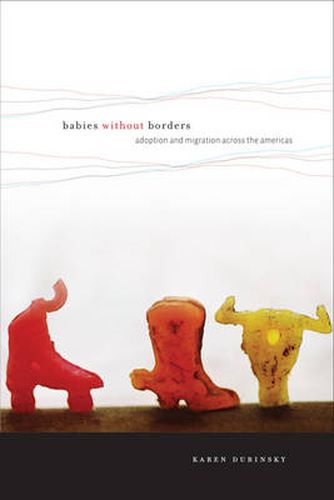Readings Newsletter
Become a Readings Member to make your shopping experience even easier.
Sign in or sign up for free!
You’re not far away from qualifying for FREE standard shipping within Australia
You’ve qualified for FREE standard shipping within Australia
The cart is loading…






While international adoptions have risen in the public eye and recent scholarship has covered transnational adoption from Asia to the U.S., adoptions between North America and Latin America have been overshadowed and, in some cases, forgotten. In this nuanced study of adoption, Karen Dubinsky expands the historical record while she considers the political symbolism of children caught up in adoption and migration controversies in Canada, the United States, Cuba, and Guatemala.
Babies without Borders tells the interrelated stories of Cuban children caught in Operation Peter Pan, adopted Black and Native American children who became icons in the Sixties, and Guatemalan children whose disappearance today in transnational adoption networks echoes their fate during the country’s brutal civil war. Drawing from archival research as well as from her critical observations as an adoptive parent, Dubinsky moves debates around transnational adoption beyond the current dichotomy-the good of humanitarian rescue, against the evil of imperialist kidnap. Integrating the personal with the scholarly, Babies without Borders exposes what happens when children bear the weight of adult political conflicts.
$9.00 standard shipping within Australia
FREE standard shipping within Australia for orders over $100.00
Express & International shipping calculated at checkout
While international adoptions have risen in the public eye and recent scholarship has covered transnational adoption from Asia to the U.S., adoptions between North America and Latin America have been overshadowed and, in some cases, forgotten. In this nuanced study of adoption, Karen Dubinsky expands the historical record while she considers the political symbolism of children caught up in adoption and migration controversies in Canada, the United States, Cuba, and Guatemala.
Babies without Borders tells the interrelated stories of Cuban children caught in Operation Peter Pan, adopted Black and Native American children who became icons in the Sixties, and Guatemalan children whose disappearance today in transnational adoption networks echoes their fate during the country’s brutal civil war. Drawing from archival research as well as from her critical observations as an adoptive parent, Dubinsky moves debates around transnational adoption beyond the current dichotomy-the good of humanitarian rescue, against the evil of imperialist kidnap. Integrating the personal with the scholarly, Babies without Borders exposes what happens when children bear the weight of adult political conflicts.